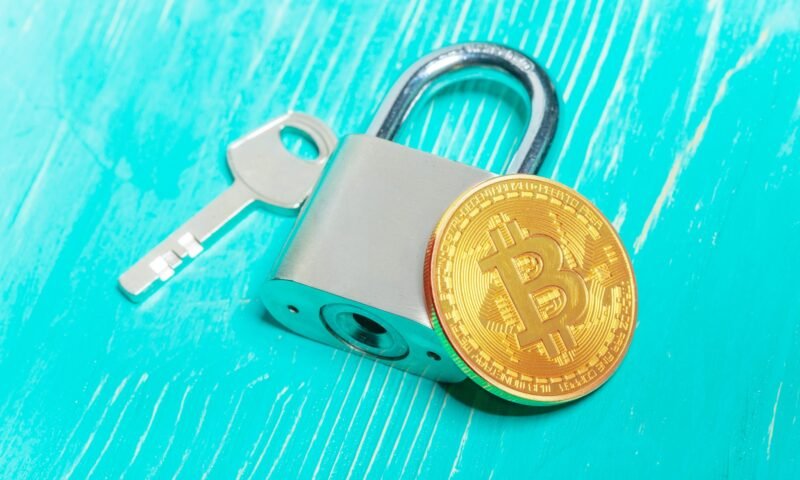
You’re not a tech expert at all, but someone recently mentioned Bitcoin, and that piqued your curiosity. You’ve heard this word before, but never really knew what it actually meant or how it worked, until one day you clicked on an article explaining nuts and bolts. Bitcoin forms the foundation of the digital money ecosystem. Currency units are distributed across a large network of computers, including laptops and smartphones. You can use Bitcoin to buy goods and services or trade them for profit.
The best way to learn about Bitcoin is to try it. If you’ve ever wondered How to buy Bitcoin Without getting lost in jargon, start by choosing a reliable exchange and take it step by step. Visit a website, choose your payment method, and get Bitcoin at the price set by the exchange.
There is a popular saying among cryptocurrency enthusiasts: “Not your keys, not your crypto.” Some cryptocurrency platforms, such as centralized exchanges, use custodial wallets, which do not provide real ownership. The central entity that issued the account keeps the private keys, even if it keeps your money safe, so you’re essentially trusting them with your assets, just like leaving cash in a safe deposit box. You can take back control of your Bitcoin using a non-custodial wallet.
What does Bitcoin self-custody mean?
Self-custody is like being your own bank. You control how and when you spend your bitcoin, but you are also responsible for storing it in a safe place because if anyone gets your money, they can use it. Investing in cold storage may be beneficial. You can use a device — such as a USB drive — that keeps your private keys offline, protecting them from malware attacks, hackers, and other online attack vectors. You can use a web or mobile wallet to obtain small amounts of Bitcoin.
The Mt.Gox incident in 2014 demonstrated the vulnerability of centralized platforms. One of the most recognizable names in the cryptocurrency industry, it handled 70%-80% of trading volume when it was suddenly shut down, as it emerged that it was linked to the disappearance of hundreds of thousands of bitcoins. Likewise, FTX went bankrupt in 2022 amid rumors that the owners were stealing and misusing client funds.
Self-custody of Bitcoin aligns well with the philosophy of decentralization. Other perks include:
- You hold the keys: You can transact in Bitcoin without permission or risk having your funds frozen since you have full control of your private keys. Additionally, you have direct access to blockchain transactions and decentralized finance (DeFi) applications.
- You have more wallet options: There is a wide range of wallet options to choose from, from hardware wallets to secure software wallets, so consider what is best for your personal situation.
- Enjoy enhanced privacy: You can maintain your anonymity as you do not have to provide personal information to external trustees. Custodial wallets require you to undergo a Know Your Customer (KYC) program to prevent financial crimes.
Self-custody of Bitcoin comes with responsibility
Self-custody is empowering because it puts you in charge of your Bitcoin and gives you the freedom to bypass any gatekeeper who may be shaky. The trade-off is that you take full responsibility for it Private key protection. If you lose your private keys, there will be no way to get your money back, so take the time to do security right. Blockchain transactions are irreversible.
Here are some best practices for keeping your Bitcoin safe:
Don’t let your seed phrase fall into the wrong hands
Digital wallets are designed to automatically generate a seed phrase upon setup. The seed phrase acts as the master key for your cryptocurrency wallet, providing a safety net if your device is lost, stolen, or broken. Both hot wallets and cold wallets can use a seed phrase to recover. Never store the seed phrase on an electronic device, whether phone, tablet or computer, as it is vulnerable to hacking; If your device is hacked, your Bitcoin is at risk.
Write down your initial statement on a piece of paper and keep it somewhere that only you will know. Some people choose to engrave their seed phrase onto a durable material, such as metal, to create an offline physical backup that will hold up against environmental damage. Paper can be easily destroyed by fire, water, or just abrasion over time. Keep the initial statement in a family safe place, in your attorney’s basement, or somewhere else you can access it in case of an emergency.
Use a hardware wallet to store your larger stash
A hardware wallet provides better security for long-term storage of large amounts of Bitcoin. It’s not exposed to the same type of threats that can drain a “hot” wallet (wallet connected to the Internet), which can include hacking, phishing attacks, and malware, and it uses secure element chips and a PIN that makes physical theft or cloning impossible. A hardware wallet can hold thousands of different currencies and tokens. You can diversify your investment portfolio without sacrificing security.
Don’t keep all your bitcoins in one account
Last but not least, you should keep your cryptocurrency accounts separate to prevent any bad move from ruining your wallet. If one account is hacked, phished, or drained by a smart contract, often disguised as a legitimate instrument or investment, your other holdings will remain intact. Each crypto wallet can create an infinite number of accounts from a single seed phrase thanks to the BIP-32 and BIP-39 standards. Keep high-risk trades in one account and long-term holdings in another.
You are less tempted to dip into your long-term savings for short-term trades when your money is spread across different accounts. Open your app, look for the “Add Account” or “Create New Account” option, and the wallet will create a new set of addresses associated with your original phrase. Clearly label the accounts in your system so you never confuse them.
Wrap it
Managing your Bitcoin can be a bit annoying, but in return, you have full control over your digital wealth. It’s like taking care of your garden.





